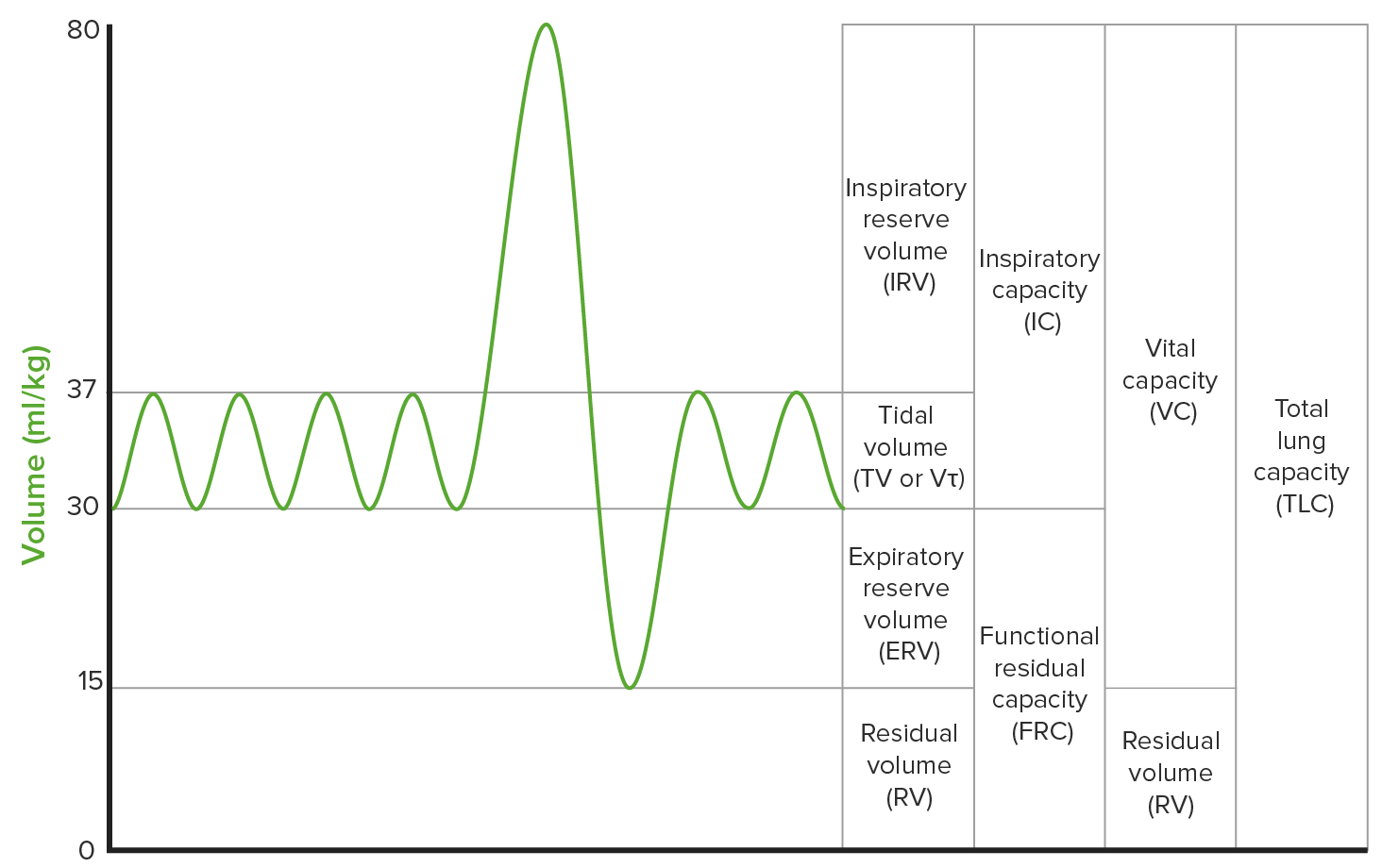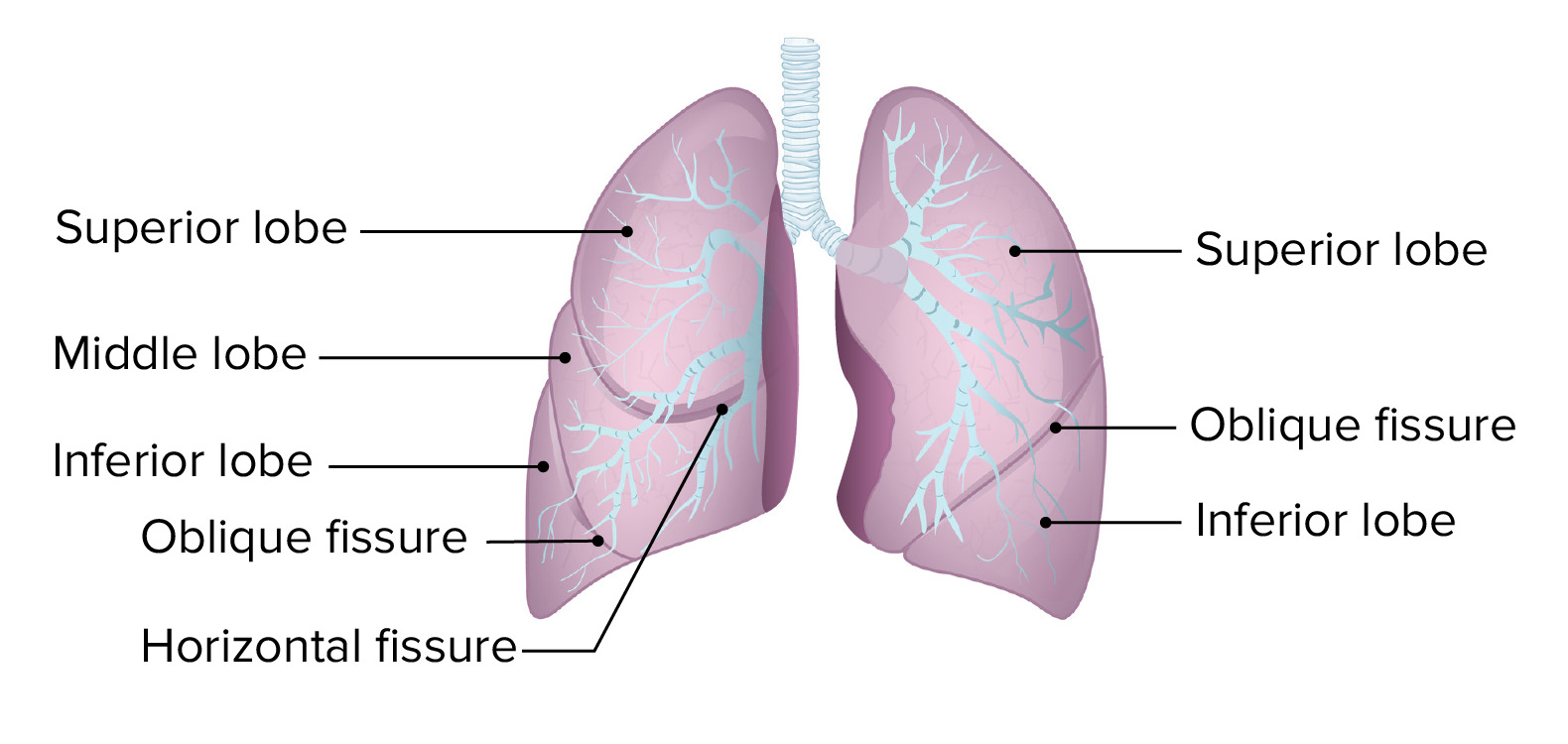Playlist
Show Playlist
Hide Playlist
Investigation – Lung Disease
-
Slides 03 LungDisease Overview Basic.pdf
-
Download Lecture Overview
00:00 Now, one of the good things about lung disease is actually, we can measure the function of the lungs. We can visualize the anatomy of the lungs. And we can biopsy or access almost every part of the lung if we need to. So it's very accessible for investigations, and this slide gives an overview of the types of investigations that are done. So if we want to look at the anatomy of the lung, then we can do chest x-rays, CT scans, other types of radiologic investigation, but we can also visualize directly the bronchial tree by doing a bronchoscopy. We can use blood tests to assess immunological function, and that may be relevant for lung disease—so, for example, with hypersensitivity pneumonitis due to bird fancier's lung, we can measure antibodies that say that that person is allergic to antigens produced by birds, for example. And we can genetically test for diseases such as cystic fibrosis. And if we want, we could obtain samples from different parts of the lung—the easiest sample being sputum, which is produced by the patient themselves. But then if the patient's not able to produce sputum, we can do a bronchoscopy get a sample from deep within the lungs directly, and we can biopsy different parts of the lung either through the bronchoscope or through CT- or ultrasound-guided biopsies approaching the lung from the outside in. And finally, if we need to, there are surgical approaches for either treating patients by removing the affected part of the lung or getting a biopsy of the affected part of the lung to get a clearer diagnosis about what the problem may be that's affecting the patient. So overall, compared to some diseases, we're much more able to assess the lung using investigations to fully identify exactly what the disease may be that's affecting the patient. So respiratory disease is a very common problem. 01:43 It's actually very varied. It covers tumors, infection, airways disease, unusual infiltrations of the lung. And it's important that you… that every doctor has a reasonable understanding of respiratory medicine and the major diseases that affect the lungs, such as asthma, COPD, cancer, pneumonia, tuberculosis, pulmonary emboli. In the course, I will describe each of those disease… diseases in detail and will give the student a feel for how these diseases present and the best approach to making a diagnosis and this… the normal treatment of those conditions. I will touch on the rarer lung conditions as well so that the student can understand how they fit into the diagnostic schema when assessing a patient. 02:32 There's an emphasis in the course on good clinical skills: how to take a good history, how to interpret that history, how to interpret the examination findings, and how to relate those to potential pathologies that might be present. Because examination and history-taking are the basis of all clinical interaction with the patient, and the ability to do those well allows the doctor to interpret what's happening to the patient much more accurately. 03:02 And although the investigations are very effective and very powerful, they are not of any use unless they are placed within the clinical context, and that requires good clinical skills.
About the Lecture
The lecture Investigation – Lung Disease by Jeremy Brown, PhD, MRCP(UK), MBBS is from the course Introduction to the Respiratory System.
Included Quiz Questions
Besides physical examination and history-taking, an investigation into lung diseases may include...? (Select all that apply)
- ...assessing the anatomy by imaging studies.
- ...reflex nerve testing.
- ...measuring physiologic functionality.
- ...measuring immunologic function.
- ...genetic testing.
Samples obtained during the investigation of a respiratory disease may be procured using different procedures. Which of the following would NOT be used to obtain a sample?
- Pulmonary angiography
- Pleural tap
- Mediastinoscopy
- Bronchoscopy
- CT-guided biopsy
Customer reviews
5,0 of 5 stars
| 5 Stars |
|
5 |
| 4 Stars |
|
0 |
| 3 Stars |
|
0 |
| 2 Stars |
|
0 |
| 1 Star |
|
0 |





